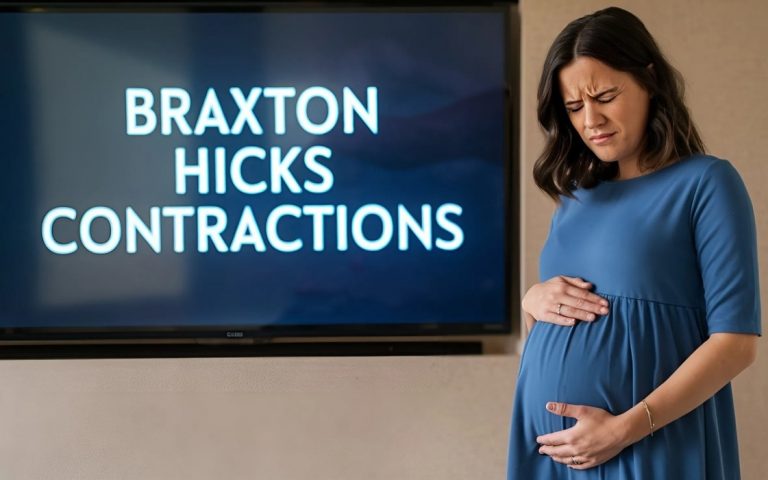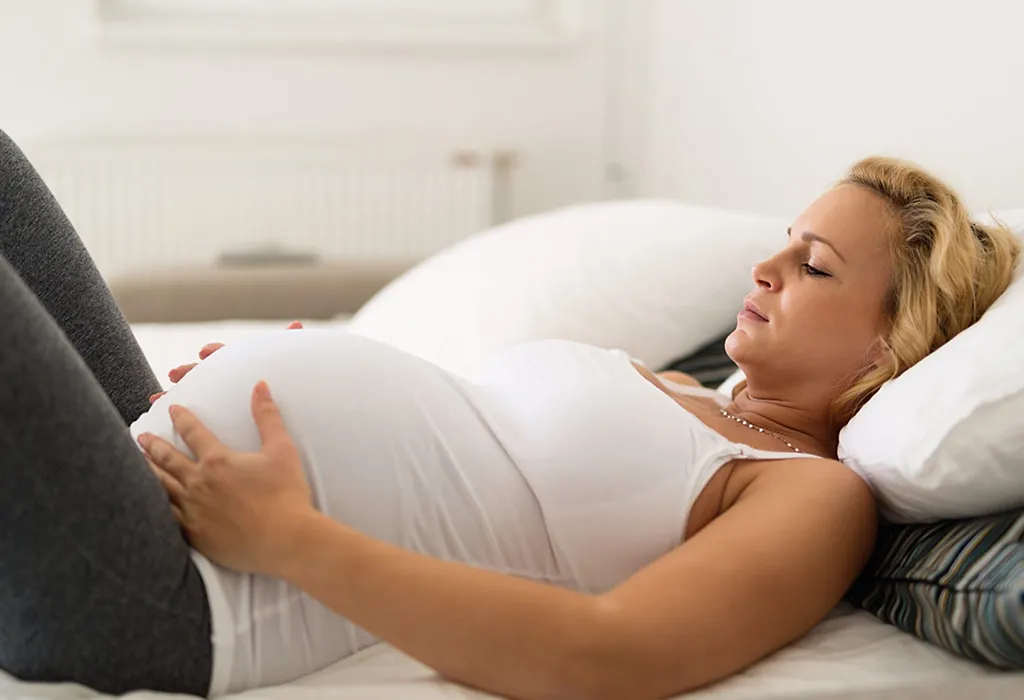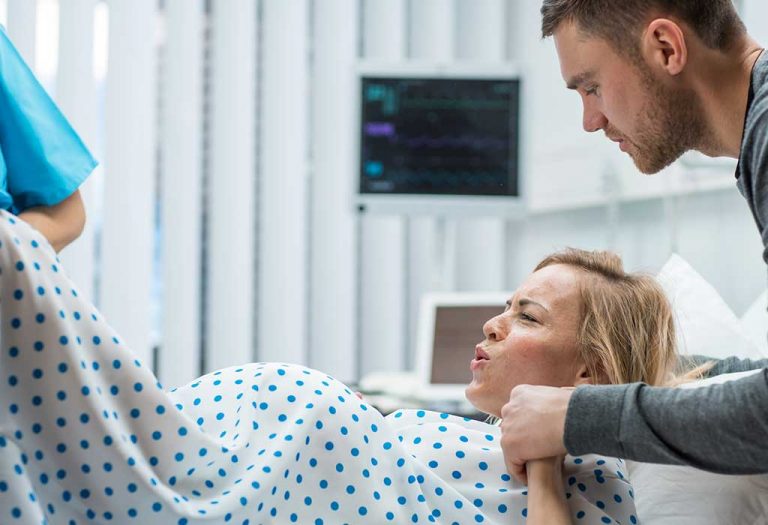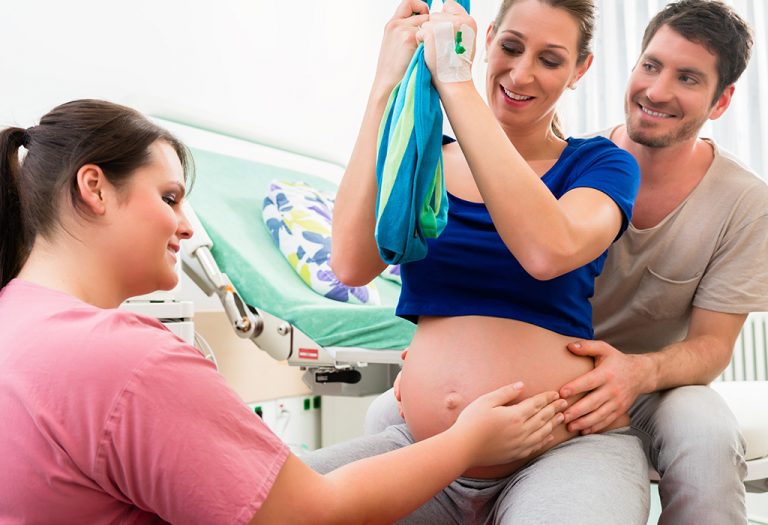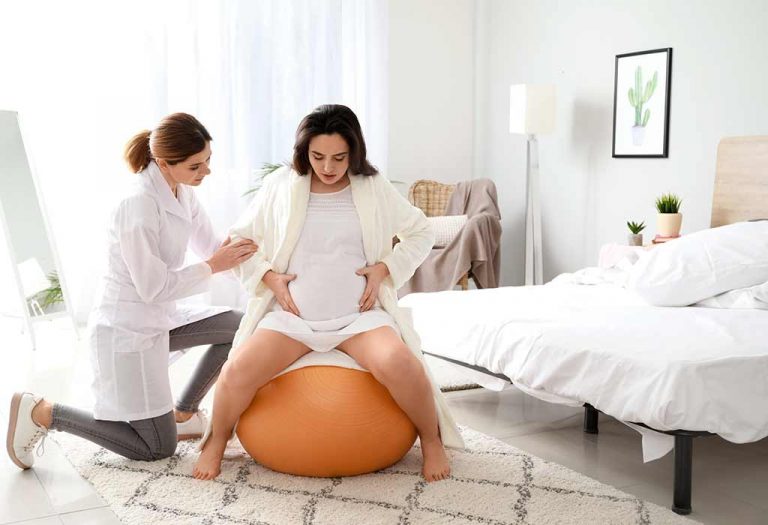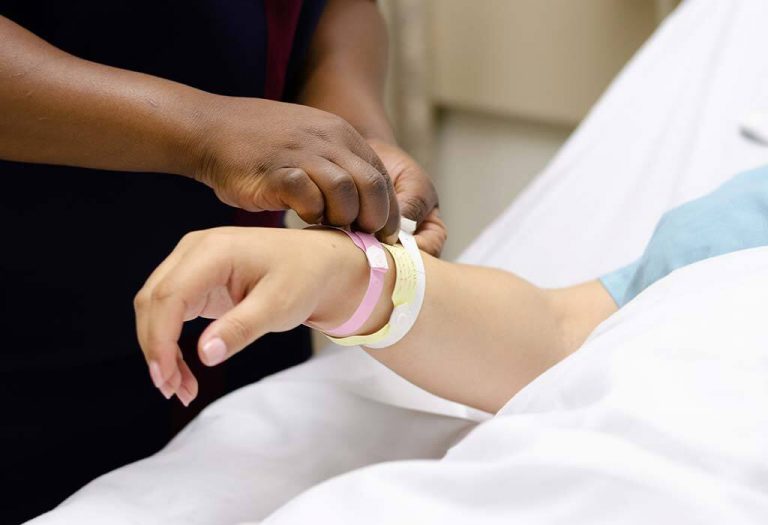Braxton Hicks Contractions (False Labor): Causes, Symptoms, & Treatments

Braxton Hicks contractions are the false labour pains that a woman experiences during pregnancy. These contractions are irregular and painless and usually occur in the second or third trimester. Braxton Hicks contractions or false labour are a sign of a woman’s body preparing for true labour, i.e., when a woman gives birth to her baby. While they may cause discomfort, they are not a cause for concern. False alarms are a way of life for pregnant women, and Braxton Hicks contractions feel like the real thing. False labour pain during pregnancy can be confusing, but understanding its signs can help ease anxiety. If you’re pregnant, read on to learn about Braxton Hicks contractions. They might be false labor pains, but they are experienced for real, and almost by all pregnant women.
What Are Braxton Hicks Contractions (False Labour) in Pregnancy?
Braxton Hicks contraction meaning can be explained as follows. When a woman experiences sporadic uterine contractions during pregnancy, these contractions are known as Braxton Hicks contractions and are named after John Braxton Hicks, a British doctor who defined them first in 1872. These contractions are difficult to distinguish from labour pain and hence are known as false labour pains. They may become rhythmic and occur quite close to each other, and you could be fooled into thinking you are going into labour. There is no fixed time when they could happen. Sometimes, waking up in the middle of the night with a full bladder or a dehydrated body could trigger Braxton Hicks contractions.
The main role of these contractions is toning the uterine muscles and improving blood flow to the placenta. Although there is no evidence of these contractions helping to dilate the cervix, they do lead to the softening of the cervix, helping the dilation process. They also help in effacement, which is the process of preparing the cervix for delivery, by softening and thinning it.
What Do Braxton Hicks Feel Like?
When Braxton Hicks contractions begin, you will feel a general tightening or squeezing together of the lower abdominal area and uterus followed by moments of relaxation, before the next contraction begins. They are easily identifiable due to their irregularity and their sporadic occurrence. These contractions can get quite uncomfortable and could cause alarm to pregnant women.
When Do Braxton Hicks Contractions Start During Pregnancy?
Braxton Hicks contractions can start anytime after 20 weeks of pregnancy, but they become noticeable only in later pregnancy. Starting as a minor discomfort, they may increase to mimic labour pains and have been known to cause false alarms among many pregnant women.
These contractions usually cause less pain as compared to real labour, and there is no fixed frequency at which they occur. They are akin to menstrual cramps, and some women experience a tight sensation in the lower portion of the abdomen.
However, as the pregnancy progresses, the strength and frequency of the contractions change too. Braxton Hicks contractions at 30 weeks can last between 30 seconds and two minutes and could resemble actual labour pain.
You should consult the doctor if the pain becomes severe or you are in any kind of doubt about the nature of the contractions.
How Early Can You Get Braxton Hicks Contractions?
The contractions can begin as early as the second trimester. However, you may not notice them until you are midway through your pregnancy. The frequency of these contractions increases as your pregnancy evolves.
Do Braxton Hicks Contractions Feel Like Period Cramps?
When you get Braxton Hicks contractions during pregnancy, it may feel like that you are having period cramps all over again, even though these contractions are felt higher in the stomach area as opposed to menstrual cramps. Also, there is no pain in the lower or deep pelvic area which is common during menstrual pain.
How to Identify Braxton Hicks Contractions
Almost all women get Braxton Hicks contractions, though they may go unnoticed until one has passed 20 weeks. Braxton Hicks contractions can be identified quickly since they generally do not cause any pain and they stop if you shift position or if you change the activity you are engaged in when the contractions occurred. These contractions do not follow a fixed pattern or regular intervals nor does the interval get shorter with every contraction.
Causes of Braxton Hicks Contractions
During your pregnancy, you can experience Braxton Hicks contractions due to the following reasons:
- If you are active most of the time and engage in body movements, these contractions can get triggered due to the baby’s movement inside the womb
- If your bladder is full, it could lead to Braxton Hicks contractions
- If someone touches your belly, it could trigger these contractions
- Sexual excitement can lead to contractions, especially after the act
- If your body is dehydrated to lower than normal levels, it can be the cause for contractions.
Braxton Hicks Contraction Symptoms That Need Attention
While Braxton Hicks contractions are generally not something to worry about, you may want to talk to your doctor if contractions are increasing in frequency and are getting painful, prior to your reaching 37th week. Watch out for these symptoms of Braxton Hicks contractions in the third trimester:
- Cramping or abdominal pain
- Increased vaginal discharge, bleeding or spotting
- Growing pain in the lower back or pelvic region
- More than four contractions in an hour.
In case you notice any of these symptoms, consult your doctor.
Difference Between Braxton Hicks Contractions and True Labour
Braxton Hicks contractions are uncomfortable but not as intense as real labour pains. However, they do not cause labour or lead to the opening of the cervix. If you are experiencing contractions, ask yourself the following questions to understand if they are Braxton Hicks contractions or true labour pains:
| Questions You Can Ask | Braxton Contractions | True Labour |
| What is the frequency and duration of the contractions? | Irregular and don’t get closer together. | Regular, last 30-70 seconds, and get closer together. |
| Do the contractions stop during movement? | Stop or reduce with movement or rest. | Continue regardless of movement or rest. |
| How strong are the contractions? | Weak or inconsistent in intensity. | Gradually grow stronger and more painful. |
| What is the location of the pain? | Felt in the front abdomen or pelvis. | Starts in the back and moves to the abdomen or vice versa. |
| What other symptoms of labour are present? | No other labour symptoms are present. |
May include water breaking, bloody show, or back pain. |
| Can hydration or rest alleviate the contractions? | Alleviated by drinking water or resting. | Not relieved by hydration or rest. |
| When do the contractions occur? | Can happen any time, often in the evening or after activity. | Occur closer to or during childbirth. |
When Do Braxton Hicks Contractions Become More Painful?
The frequency of Braxton Hicks contractions increases as your pregnancy progresses but they generally remain painless till you get to the third trimester of the pregnancy. As the due date nears and you are within two to three weeks of the big day, the contractions grow in intensity and their frequency increases too. During this time, the pain rises and begins to cause discomfort.
Braxton Hicks Contractions Treatment
Although these contractions do not hurt in most cases, you may find yourself getting uncomfortable and uneasy. You can try the following measures to ease this discomfort and alleviate any pain that may accompany it:
- As soon as the Braxton Hicks contractions begin, change the current position you are in or the present activity you are engaged in. If you are walking, rest for some time and if you are resting, make a quick attempt to walk, albeit slowly.
- If dehydration is the cause for the contractions, you should drink some water and keep yourself hydrated to avoid recurrence of the contractions. A warm cup of herbal tea will also help you.
- Engage in some relaxation exercise or practise slow yet deep breathing for a while. Though this will not stop the contractions, you will feel better and relaxed
- Relieve yourself immediately if your bladder is feeling full. This can reduce Braxton Hicks contractions. Remember, a full bladder irritates the uterus. If you are travelling, ensure you take enough restroom breaks to keep the discomfort of contractions away
- Grab a cookie or a biscuit if you are getting regular contractions and avoid getting hunger pangs by taking small and nutritious meals at regular intervals
- If you are up to it, a warm and relaxing bath for 30 minutes can help in reducing Braxton Hicks contractions. You could also cuddle up with a warm water bag or bottle wrapped in a soft towel.
When to Consult the Doctor
Braxton Hicks contractions are usually harmless and considered a normal part of pregnancy. However, it’s essential to differentiate between these false labour pains and signs that may require medical attention. Here are some situations when you should consult your doctor:
- Severe Pain or Discomfort: If the contractions cause intense pain that doesn’t subside with rest or hydration, consult your doctor to rule out complications.
- Increased Frequency and Regularity: If the contractions become more frequent, rhythmic, and closer together, they may indicate preterm labour.
- Bleeding or Unusual Discharge: Seek medical help immediately if you experience vaginal bleeding or notice a sudden increase in discharge along with contractions.
- Persistent Back Pain: Severe or constant back pain accompanied by contractions may signal the onset of labour or other issues requiring attention.
- Decreased Fetal Movement: If you notice reduced fetal activity while experiencing Braxton Hicks contractions, contact your healthcare provider to ensure everything is okay.
FAQs
1. Can Braxton Hicks contractions cause the baby to move less?
No, Braxton Hicks contractions typically do not affect the baby’s movement. However, if you notice a significant decrease in fetal activity, it is crucial to consult your healthcare provider to rule out any complications.
2. Are Braxton Hicks contractions more common in subsequent pregnancies?
Yes, women who have had previous pregnancies may experience Braxton contractions more frequently or earlier than first-time mothers. This happens because the uterine muscles are more accustomed to the stretching and contractions.
3. Does every pregnant woman get Braxton Hicks contractions?
Every pregnant woman experiences Braxton Hicks contractions in varying degrees. You may get contractions and fail to identify them as a Braxton Hicks contractions since the intensity may be quite low, especially in the initial stages of pregnancy.
It is best to discuss Braxton Hicks contractions with your doctor. As each pregnancy is different, your doctor will help you understand the symptoms or alarms you should watch for. If you are not sure of the contractions you are experiencing, do call the doctor and follow her advice.
References/Resources:
1. Braxton Hicks Contractions; Cleveland Clinic; https://my.clevelandclinic.org/health/symptoms/22965-braxton-hicks
2. Braxton Hicks Contractions – Causes, Symptoms & Pain Relief; American Pregnancy Association; https://americanpregnancy.org/healthy-pregnancy/labor-and-birth/braxton-hicks/
3. Braxton Hicks contractions; Pregnancy, Birth & Baby; https://www.pregnancybirthbaby.org.au/braxton-hicks-contractions
4. What Are Braxton Hicks Contractions?; Penn Medicine: Lancaster General Health; https://www.lancastergeneralhealth.org/health-hub-home/motherhood/your-pregnancy/what-are-braxton-hicks-contractions
5. 5 common questions about Braxton Hicks contractions; Mayo Clinic Health System; https://www.mayoclinichealthsystem.org/hometown-health/speaking-of-health/5-common-questions-about-braxton-hicks-contractions
6. Raines. D, Cooper. D; Braxton Hicks Contractions; National Library of Medicine; https://www.ncbi.nlm.nih.gov/books/NBK470546/
7. How to Tell When Labor Begins: FAQs; American College of Obstetricians and Gynecologists; https://www.acog.org/womens-health/faqs/How-to-Tell-When-Labor-Begins
Also Read:
Contraction Stress Test while Pregnant
Timing Contractions During Labour
What Is a Contraction Calculator and How Does It Work
False Labour Vs Real Labour – How to Spot the Difference
Was This Article Helpful?
Parenting is a huge responsibility, for you as a caregiver, but also for us as a parenting content platform. We understand that and take our responsibility of creating credible content seriously. FirstCry Parenting articles are written and published only after extensive research using factually sound references to deliver quality content that is accurate, validated by experts, and completely reliable. To understand how we go about creating content that is credible, read our editorial policy here.






